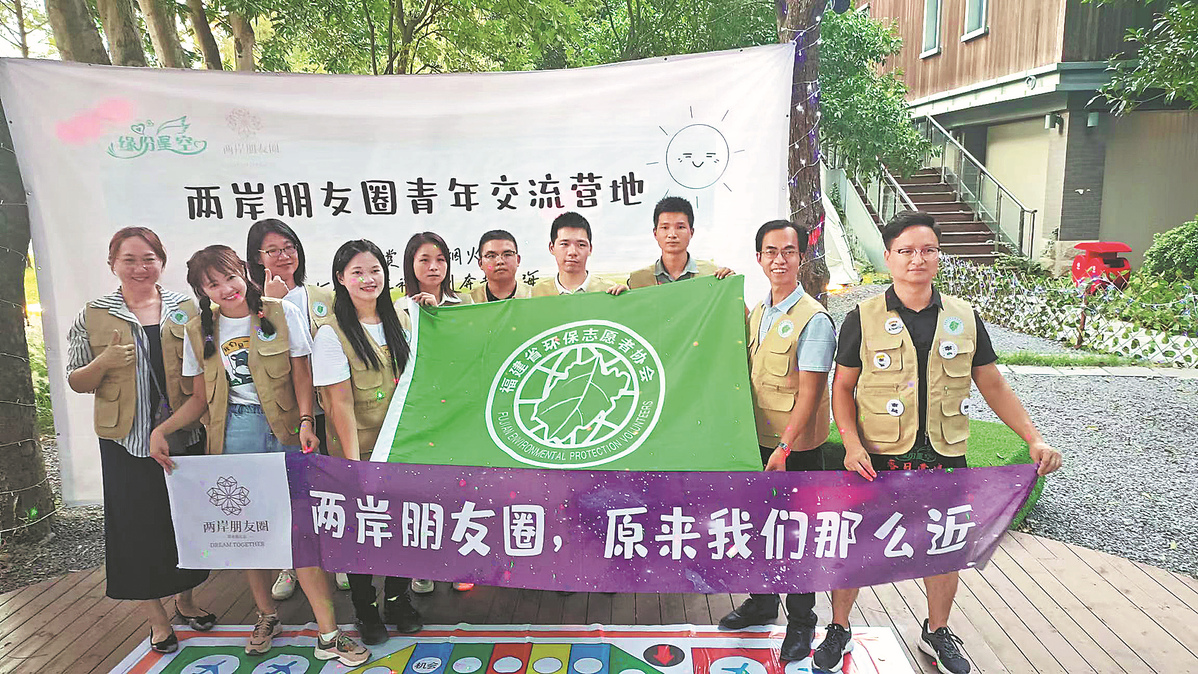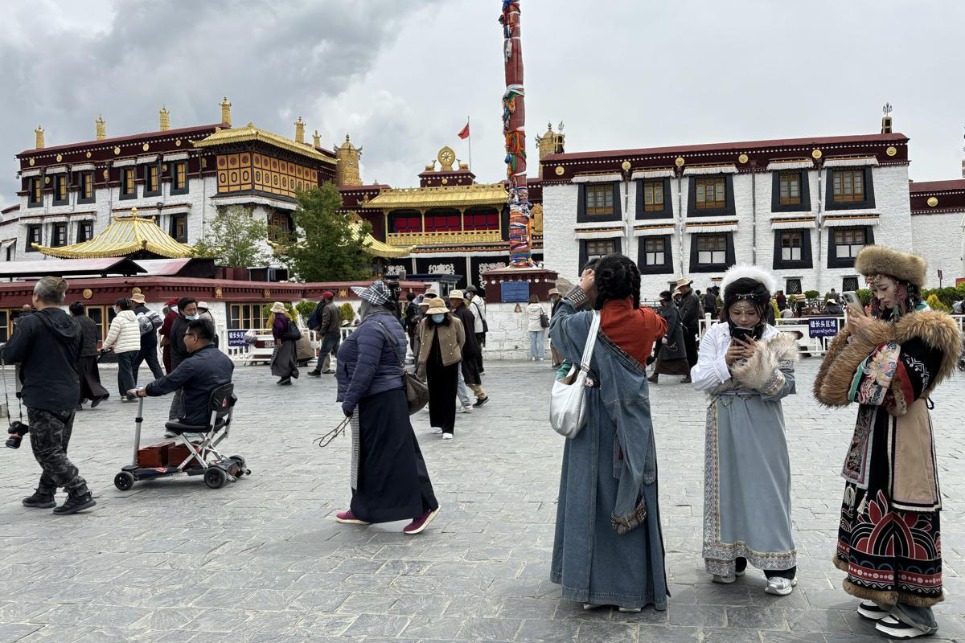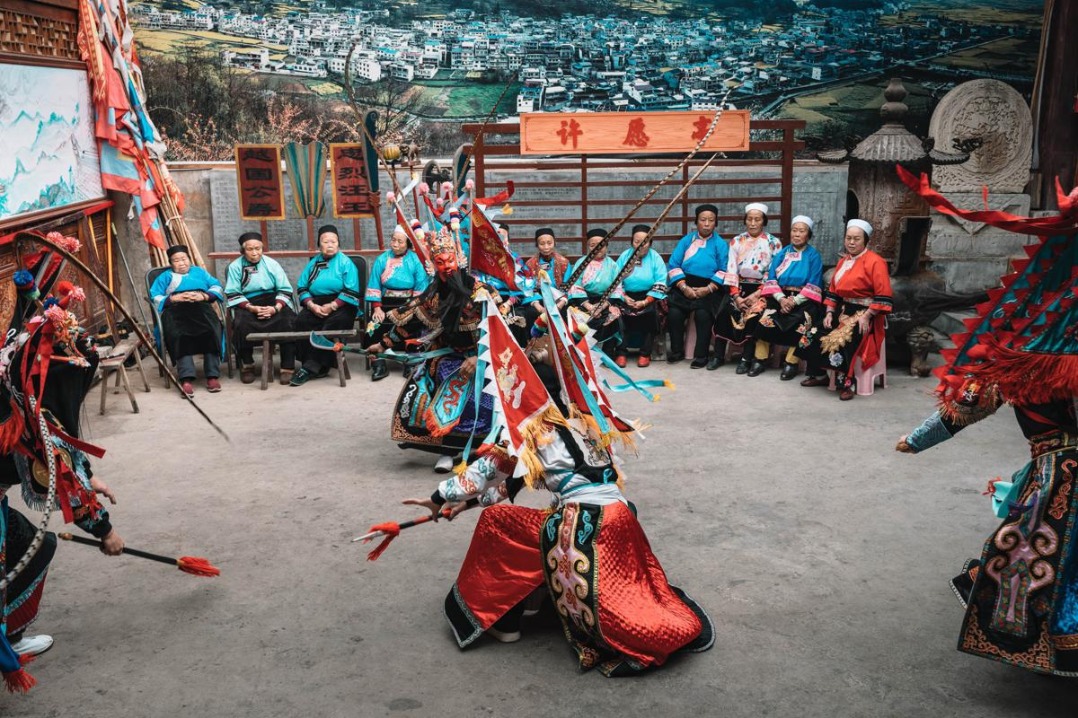Taiwan native educates Fuzhou on environment


Taiwan-born Chen Hsiao-ting's life has become much busier since she joined the first volunteer group of environmental protection lecturers in Fuzhou, Fujian province.
During the National Day holiday and the following weekends, Chen and her team members organized a series of activities to promote environmental protection in communities and parks in the city, handing out information booklets and cultural and creative products to residents and passersby.
Chen, along with three other young people from Taiwan, was recruited on Oct 10 during a symposium on environmental volunteer exchanges between youth from the Chinese mainland and the island.
"They were selected due to their outstanding performance in environmental volunteer work and their great enthusiasm," said Huang Houxin, deputy chairman of the Fujian Environmental Protection Volunteers. "Furthermore, they have good reputations and influence among Taiwan youth in Fuzhou, which can help promote good environmental protection ideas and attract more young people to join us."
Chen said: "I felt more responsibility when I received the appointment certificate issued by the Fujian Environmental Protection Volunteers. I will continue to integrate Taiwan's environmental experiences and practices into volunteer activities in the city and hope to encourage more people to join environmental protection efforts."
Born in Taipei, Taiwan, Chen, 33, started her media business in Fuzhou in early 2021.
"In the early 1990s, my father came to Fuzhou to invest and set up a factory, so I have been deeply impressed by Fuzhou since my childhood, especially the local delicacies," she said. "In recent years, various policies to benefit Taiwan people made me see the infinite possibilities of development, so I decided to start my business in Fuzhou."
Walking around the streets of Fuzhou, Chen made videos that explore the charm of the city's intangible cultural heritage, such as cork paintings and wedding customs. At the start of this year, Chen set up a group called the "Cross-Strait Friends' Circle", with the aim of better integrating young people from both sides of the Strait.
"We have various themed activities, such as fashion, the internet, intangible cultural heritage and environmental protection," she said. "During activities involved with environmental protection, I found that some methods we used in Taiwan aroused the interest of the participants.
"It is very common to refuse disposable items in Taiwan," she added. "For instance, we usually take our own cups to drink water outside, and after dinner at a restaurant we use the containers we bring with us to pack the leftover food."
Chen said such experiences and practices from Taiwan could be publicized in Fuzhou through her volunteer work. To attract residents, Chen and other volunteers set up booths in public areas, such as parks and well-known scenic spots, to spread the word.
"I found that not all people are interested in the information handbooks, so I tried some new methods," she said. "I have created my own cultural brand and my team members have helped me develop a group of WeChat emojis with the theme of environmental protection as well as a series of related cultural products."
The vivid images attract passersby who can also win cultural products as prizes after participating in educational games on environmental protection.
"Our association has attracted nearly 50 Taiwan volunteers who can bring more fresh environmental knowledge and concepts to our daily activities," Huang said, adding they conduct environmental lectures in communities, shopping malls and schools to encourage more people to join in.
Chen said she also plans to combine environmental protection awareness with intangible cultural heritage.
"For example, during the campus activities, we can teach students to make intangible cultural heritage handicrafts with recycled material. It's a good way to expand both traditional culture and the environmental protection concept," she said.
- Lhasa's GDP grows 7.1 percent in first three quarters of 2025
- Co-hosting games boosts GBA integration
- Scholars call for ecological protection of Tunbu culture
- Cross-Strait exhibition highlights Chinese crested tern conservation
- China halts port fees on US vessels for one year
- China moves to cut teachers' administrative workload





































